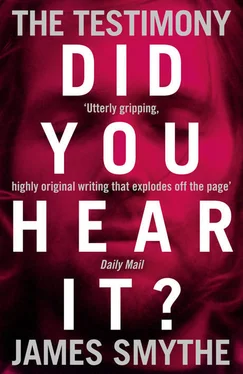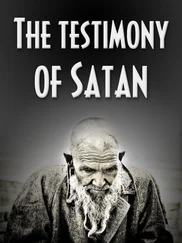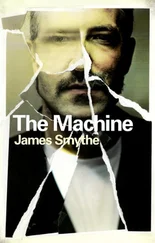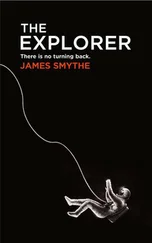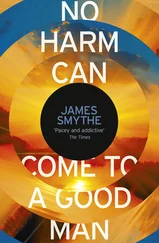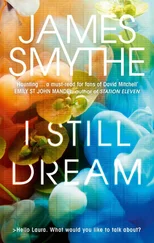As the pain got worse I got more desperate, realizing that the painkillers were wearing off, and I started wriggling to get free. I managed it eventually, rocking the bed – it was a gurney – until it tipped over, and the back snapped and I made it out. I couldn’t walk, and I didn’t know why, but I pulled myself to the cabinets in the far corner, raided them for pills. There was stuff with names that I recognized, for pain; I swallowed them down, and I passed out again. When I woke up I saw that the pain was as bad as it was because my left arm was all but gone, up to the elbow, wrapped off in bandages, howlingly painful when I so much as prodded it. But, I was alive. I passed out again, from the pain.
After that, when I woke up next, I pulled myself to the reception area, raided the vending machines, because I was so hungry, smashing the glass with one of the chairs, eating crisps and old pies and sandwiches and chocolate bars, drinking fizzy drinks, taking my pain medication. I found a wheelchair and I pushed myself outside with just one arm, using my leg to try to make myself move in a straight enough line, to try and find some people, or make it to a phone, maybe even to find Audrey, tell her I was sorry.
The next time I woke up it was to receptionists. One of them, in a pink smock, screamed when she saw me. Who’s this? she kept asking, and I tried to speak, to tell her – My name is Jacques Pasceau, I am a translator, I work at the University of Aix-Marseilles, that, damn it, is who I am – but I could only mumble the words out, because of the teeth, because of the painkillers, which made me sluggish, like I was speaking through tar. Eventually another receptionist appeared, and a doctor (though not the same one as before), and they pulled me to a room, put me back onto a bed. They asked me if I broke the vending machine, if I stole the medicine, but I couldn’t explain properly what had happened. They locked the door and called the police, and it was left to them to piece it together when they arrived. That I had been operated on was obvious. My arm, I heard them saying, was still in the medical waste disposal.
Ed Meany, research and development scientist, Virginia
You get a half-hour, max, from a hazmat suit. You get protected for longer, in terms of the suit’s capabilities, but your air runs out at the thirty-minute mark, because it comes from a tank, like you get in scuba suits. I ran out of that before I was even at Reagan Airport, and I still hadn’t seen anybody, no army transports, nothing. I had to make the decision there and then about what to do, so I took the mouthpiece out and kept walking, taking in the air from the suit first, then cracking the seal every few minutes, let more air in. It slowed me down, but I kept checking with the Geiger, and by the time I made it to Alexandria, a few hours later, the readings weren’t so bad. I called the emergency services from down there, because I felt alright taking off the mask for a few minutes, told them who I was, and they told me to stay where I was, that they’d send somebody to pick me up. It took them hours, and when it arrived it was an ambulance, only unmarked. The EMTs were all in hazmats as well, and they asked if I was alright, looked at my eyes, that sort of thing. They told me not to take off the suit. It’s still so dangerous, sir, they said.
When we got to the hospital – one that I had never been to, and that I didn’t recognize, with no signs up to tell me the name of it, and no patients other than government employees – they put me in a decontamination room, sprayed me, checked me all over, bloods, skin samples, the works. We need to check to see if you’re alright, they said. Three days later they let me leave, telling me that I needed to have monthly check-ups, to make sure that nothing changed. I’ll get myself checked, I said.
María Marcos Callas, housewife, Barcelona
We spent three or four glorious days with our churches full of the people, brimming with joy and wonder. We didn’t talk about The Broadcast , because it was gone and, whilst not forgotten, consigned away. It was merely God’s way of testing our faith, and we would write about it in our new Gospel, and it would be a sign. The church had found an author who wanted to write the Gospel, one of those big literary types from America, and he was taking suggestions from all over the world as to the content. My suggestion? It should be always true to the ways that the Lord tested His people in the past. He sent plagues to them, as He did to us; He tested their faith, as He did to us; He blessed and forgave them, as He did to us. This was merely a new Gospel, I said, and it would be foolish to mark it as anything else.
Piers Anderson, private military contractor, the Middle East
Simon was rattling on and on about how we could help pick ourselves back up, how we could try to make something new out of all of this. He seemed almost desperate to claw some sense of normality together, so I humoured him. We shopped in the local supermarket, where people still remembered me as the son of David and Angharad, and they were all very nice. We didn’t tell them how we came to be there, or what our relationship was, exactly; we let them assume. Let them have their gossip, Simon said. Truthfully? I think he quite liked it. He was used to people taking it for granted back in London, and I think he liked being slightly different, for once. The villagers had set up a Church of the One True God in the old Christian church, and they asked us to go along. It’s really lovely, one of the women who ran the post office told us. I’m sure that it is, Simon said.
We got chickens that week, from one of my father’s old associates. You’re going to be staying in that house, you’ll need to get the coops back up and running, he said, and he gave us three. I offered to pay him, but he turned me down. Favour to the son of a friend, he said. Couple of days after that, we were taking a walk on the hills when we found a dog, a black lab, stray. I said it was stupid to think it was just a stray, because it was as healthy as any dog I’d ever seen, so we took it home, put up a poster on lampposts and in some of the local shop windows. We put up the posters, nobody came to collect him, so then we had a dog.
According to the newspapers, there were over eighty MPs who did what Simon did, just upped and ran away from their seats, and the newspapers put out a plea a few days later, asking for them to come back. Your country needs you! they said, and Simon pulled a face. He didn’t go, but he did think about it. You could see that he thought about it.
Tom Gibson, news anchor, New York City
I spent the week in Philadelphia, but they were annoyed. I was treading on their toes. I told them that I’d get out onto the streets, do field reporting, head to the towns around New York, see if they had anything to say for themselves. I decided to start at the top and work my way down.
Meredith Lieberstein, retiree, New York City
I stayed in Rochester for a week. That town had never been so busy, because people were coming from New York City, looking for places to stay. What you had was an unparalleled situation where all these businesses, reliant on the city, were suddenly uprooted. Some of them had other branches, but many of them didn’t. Nobody knew what would happen to them all, when law firms had to run themselves out of people’s living rooms, and entire generations of family restaurants, grocery stores, department stores, when they were all lost in a second. I decided to move on, because the hotels needed the rooms – frequently, it was to cram whole families into one room, like we were a Third World country – and because I had no reason to stay there. I ran into that reporter as I was leaving, as I was packing up the car, that awful reporter that Leonard hated so very, very much. He was very polite, asking me what I was doing. You’re leaving Rochester, he said, can I ask why? My husband passed, I said, and I don’t have a reason to stay here. There’s a lot of this country I could go to, I suppose. I could see the cogs turning – older lady, dead husband, chance for a story – and he pounced, asked what Leonard was like. He was stubborn, belligerent, argumentative and kind, I said, and he absolutely hated you.
Читать дальше
Конец ознакомительного отрывка
Купить книгу
